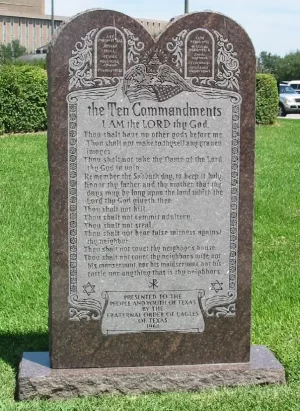Introduction
Understanding the Five Jewish Covenants
Throughout history, humanity has constantly sought ways to connect with the divine. In the Bible, God establishes and nurtures His relationship with His people through covenants. These divine agreements, made with the Jewish people of Israel, are not just contracts but rather sacred commitments. They reveal God’s unwavering faithfulness and love.
The Progression of God’s Plan
Each covenant marks a significant step in God’s unfolding plan of redemption. They guide the spiritual journey of His chosen people. The five major covenants—Noahic, Abrahamic, Mosaic, Davidic, and the New Covenant—not only highlight various aspects of God’s promises and expectations but also progressively reveal His character and His ultimate plan for humanity.
The Transformational New Covenant
The fifth covenant, the New Covenant, brings the most remarkable transformation. Unlike previous covenants, which focused on external laws, the New Covenant offers believers the indwelling of the Holy Spirit. This Spirit writes God’s laws on their hearts. As a result, this change signifies a deeper intimacy with God and empowers believers to live in true obedience.
The Five Covenants
1. The Noahic Covenant
Scriptural Reference: Genesis 9:8-17 (CJB)
Universal Promise: God promises Noah and his descendants that He will never again destroy all life on earth with a flood.
Sign of the Covenant: The rainbow serves as a perpetual reminder of this promise, symbolizing peace and God’s enduring mercy.
Significance: The Noahic Covenant stands as a testament to God’s mercy and faithfulness. It offers hope and reassurance of His enduring love, despite human failings.
2. The Abrahamic Covenant
Scriptural References: Genesis 12:1-3 (CJB), Genesis 15 (CJB), Genesis 17:1-14 (CJB)
Promise of Land, Descendants, and Blessings: God calls Abram (later Abraham) and promises to make him a great nation. He blesses him and makes his name great.
Details of the Covenant: God promises Abraham countless descendants and land stretching from Egypt to the Euphrates. He reaffirms this covenant by changing Abram’s name to Abraham.
Sign of the Covenant: Circumcision serves as the sign, symbolizing the people’s commitment to God.
Significance: The Abrahamic Covenant establishes the chosen people and lays the groundwork for Israel’s unique purpose. Furthermore, it points forward to the blessing for all nations through Abraham’s lineage.
3. The Mosaic Covenant
Scriptural References: Exodus 19-24 (CJB), Deuteronomy 5 (CJB)
Giving of the Law at Mount Sinai: God establishes a covenant with the Israelites at Mount Sinai. He gives Moses the Law, including the Ten Commandments.
Sign of the Covenant: The Sabbath is the sign, reminding the Israelites of their unique relationship with God.
Significance: The Mosaic Covenant provides a moral and legal framework, teaching the Israelites how to live holy lives. It sets them apart as a people dedicated to God.
4. The Davidic Covenant
Scriptural References: 2 Samuel 7:12-16 (CJB), 1 Chronicles 17:11-14 (CJB)
Promise of a Perpetual Dynasty: God promises David that his lineage will endure forever, establishing a kingdom through his descendants.
Future King (Messiah): The covenant points to a future king, the Messiah, who will establish a righteous and everlasting kingdom.
Significance: The Davidic Covenant emphasizes godly leadership. Moreover, it assures God’s ongoing commitment to His people and His plan to restore and redeem them through a righteous reign.
5. The New Covenant
Scriptural References: Jeremiah 31:31-34 (CJB), Ezekiel 36:26-27 (CJB), Hebrews 8:6-13 (CJB)
God’s Laws Written on the Hearts: This covenant promises that God’s laws will be written on the hearts of His people, fostering a deeper relationship.
The Indwelling of the Holy Spirit: Believers receive a new heart and spirit, empowered to live according to God’s will.
Forgiveness of Sins: The New Covenant offers complete forgiveness and a restored relationship with God through Jesus/Yeshua.
Significance: Unlike previous covenants, the New Covenant promises internal transformation, comprehensive forgiveness, and the empowerment of the Holy Spirit. Thus, it marks the culmination of God’s redemptive plan.
The Superiority of the New Covenant
- Transformation of the Heart: God gives His people a new heart and spirit, empowering genuine obedience (Ezekiel 36:26-27 (CJB)). This transformation allows believers to live in accordance with God’s will.
- Intimate Relationship with God: This covenant assures that all will know God personally, transcending past mediated relationships (Jeremiah 31:33-34 (CJB)). Consequently, it establishes a more profound connection between God and His people.
- Comprehensive Forgiveness: Believers receive final forgiveness of sins, contrasting with the repeated sacrifices under the Mosaic Covenant (Hebrews 10:16-17 (CJB)). Therefore, this forgiveness allows believers to live free from the burden of sin.
- Empowerment to Live Righteously: The Holy Spirit empowers believers to live righteously, fulfilling the Law’s requirements (Romans 8:1-4 (CJB)). As a result, believers can uphold God’s standards not through their own efforts but through the Spirit’s work within them.
Call to Action: Embrace the New Covenant
The New Covenant offers incredible promises. However, to experience these blessings, one must accept Jesus/Yeshua as their Savior and receive the Holy Spirit.
Scriptural Invitation:
- John 3:16 (CJB): “For God so loved the world that He gave His one and only Son, that whoever believes in Him shall not perish but have eternal life.”
- Acts 2:38 (CJB): “Repent and be baptized, every one of you, in the name of Jesus Christ for the forgiveness of your sins. And you will receive the gift of the Holy Spirit.”
Conclusion
In conclusion, the journey through the five covenants reveals God’s steadfast commitment to His people and His unfolding plan of redemption. The New Covenant, established through Jesus/Yeshua, surpasses all others. It offers internal transformation, an intimate relationship with God, and the empowerment to live a righteous life. Therefore, embracing this covenant today allows you to experience the fullness of God’s promises.
